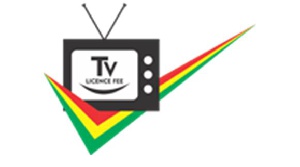The Ghana Journalist Association (GJA) has urged Ghanaians to pay the controversial TV licence fee.
The introduction of the mandatory TV licence fee where defaulters will be prosecuted by special TV licence courts across the country in line with the TV licensing Act has been met with stiff opposition from majority of Ghanaians.
Domestic TV users are to pay between GHS36 for one TV set and GHS60 for two or more TV sets in a household, while TV set repairers and sales outlets are to pay an annual sum of between GHS60 to GHS240.
Contributing to the ongoing debate on whether to pay or not, the GJA in a statement said: “ The 1992 Constitution of Ghana, specifically Articles 55(11), (12) and 163, imposes some critical responsibilities on the state-owned media, including the GBC. In view of the need to discharge such overwhelming constitutional obligations (regardless of the current high density of media pluralism), and considering the precarious financial disposition of GBC, it will be proper to embrace the payment of TV license fee for the survival of the national broadcaster.”
The GJA however urged the state broadcaster to improve its content and the quality of service it provides.
“While making a case for the GBC, the GJA also appreciates the need for the national broadcaster to address critical concerns of the public regarding quality content and programming. Although the law on TV License fee is not essentially about content, the need for quality public service content cannot be trivialised. We therefore urge the national broadcaster to endeavour to improve its content and the quality of its service in order to acquire the social license that would encourage the payment of TV license fee,” the statement added.
GJA also admonished Ghanaians that all discourse on the TV licence be done dispassionately, free from emotions and bias.
Below is the full statement
GJA CALLS FOR DISPASSIONATE DEBATE ON PAYMENT OF TV LICENSE FEE
The Ghana Journalists Association (GJA) has been following with keen interest the current debate on the payment of TV License fee to the Ghana Broadcasting Corporation (GBC). The debate, which began a few years ago, has been rekindled by the recent decision of the Chief Justice to designate special courts in the 10 regions of the country for the prosecution of defaulters of the law.
The payment of TV license fee in Ghana was established in 1966 by the Television Licensing Act, 1966 (NLCD 89). Since then, there have been many amendments to the law and regulations enacted for its implementation.
The GJA is deeply concerned that some of the arguments advanced for or against the payment of TV License fee are founded on emotional effusions, rather than sound legal and empirical reasoning. Such approach and analysis will not enrich the debate for the betterment of the country. It is, therefore, important for all to situate the issues of TV license fee in their proper contexts.
We appreciate the fact that the law on TV license fee, which was enacted 52 years ago at a time GBC enjoyed monopoly, may have been overtaken by technology and media pluralism, for which reason it may have to be amended. But we also believe that technological advancement and liberalisation of the broadcast industry do not by their sheer force, strip GBC of its character as a public broadcaster that requires financial oxygen such as TV license fee to survive.
Without a doubt, GBC has undertaken and continues to undertake good public service programmes in fulfillment of its mandate. Examples are the live telecast of the Supreme Court Election Petition hearings in 2013 and the Parliamentary Public Accounts Committee sittings. Despite its shortcomings, GBC has the widest reach of all broadcast media in the country, serving the remotest parts.
The 1992 Constitution of Ghana, specifically Articles 55(11), (12) and 163, imposes some critical responsibilities on the state-owned media, including the GBC. In view of the need to discharge such overwhelming constitutional obligations (regardless of the current high density of media pluralism), and considering the precarious financial disposition of GBC, it will be proper to embrace the payment of TV license fee for the survival of the national broadcaster.
While making a case for the GBC, the GJA also appreciates the need for the national broadcaster to address critical concerns of the public regarding quality content and programming. Although the law on TV License fee is not essentially about content, the need for quality public service content cannot be trivialised. We therefore urge the national broadcaster to endeavour to improve its content and the quality of its service in order to acquire the social license that would encourage the payment of TV license fee.
Globally, there are many TV license regimes from which Ghana can take a cue to enrich the current debate. The US, UK, Japan, France, Germany, and Italy offer a variety of examples of funding mixes for public service broadcasting.
As a nation we, therefore, need to be very dispassionate in the current debate, deepen public education, stop the partisan twists and help establish a suitable funding mechanism which will sustain the GBC and financially empower it to serve the public interest better.
General News of Tuesday, 9 January 2018
Source: classfmonline.com

















